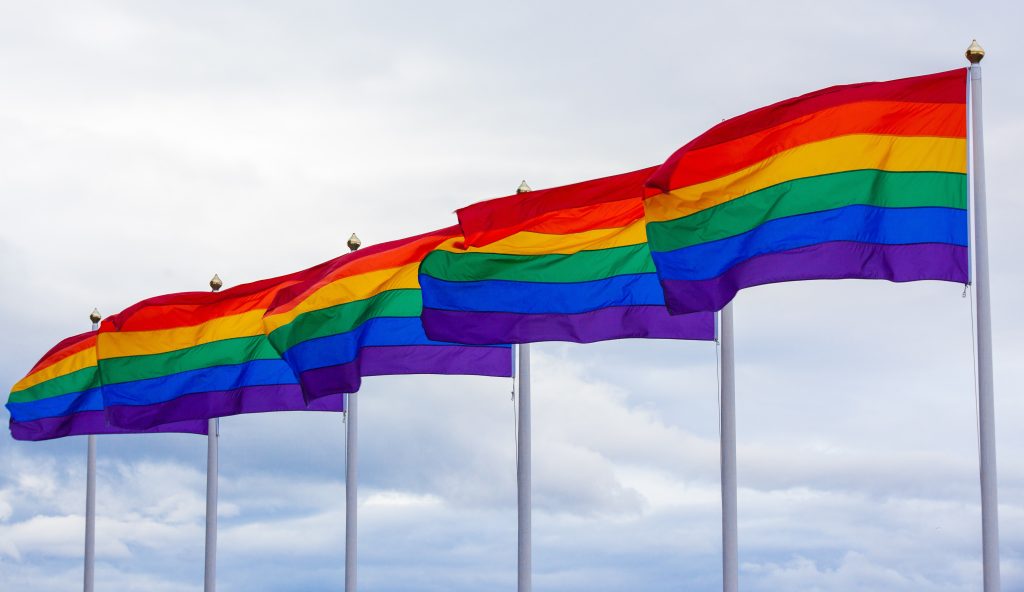A brand’s presence on social media may suggest otherwise. We need to remember that everything they do is a marketing strategy. Funny posts about current events are ads. Activism and support of civil rights movements are ads. One-on-one engagements with fans and customers are ads. To compete, brands need to form deeper and more personal connections. We’ve already completely disengaged with the ‘social’ aspect of social media. The last thing we want to do is start engaging with brands online like they’re real people. It’s one thing to have a parasocial relationship with an internet personality, but having one with a brand seems a little too much in the dystopian direction.
We see between 4,000 and 10,000 ads a day, but only register about 100
If we fully noticed every ad we saw we’d go crazy. With the oversaturation of advertising in every facet of our lives, brands need to fight to be seen. It takes a lot for them to be one of the 100 ads we actually pay attention to. That’s where viral marketing comes in. By replicating popular posts from social media, brands hope to be able to capture our attention in the same way. So much social media marketing now is all about being relatable, down to earth and “human”. In an article for Digiday, Kimeko McCoy calls this “The Funny Brand Voice”. She goes on to describe its ubiquity in brands’ current marketing strategies, to the point where they’re all sounding the same (in their attempts to be unique).
Any ‘LOL totes quirky and relatable’ posts you see are from endless marketing strategists and execs.
A lot of work is put into making them seem effortless and off the cuff. Using current slang and hopping on trends will come with careful writing and risk assessment, and will inevitably always be slightly past when the trend was relevant. Whether it’s the hot new movie of the season, or the latest Tiktok craze, brands will do their best copy the zeitgeist and seem relevant. We see Tinder posting about having ‘girl dinner’ every day when you’re dating a girl, or M&M’s jumping on the Barbie Movie bandwagon as an accompanying snack.
A step further is the ‘unhinged social media manager’ trope. A good example of this is Duolingo on Tiktok. Videos feature the brand’s mascot ‘Duo’ the owl doing wacky, off-brand activities, such as sporting a leather harness to go raving in Berlin. Or you have Wendy’s on X (formerly Twitter), becoming known for ‘roasting’ complaining customers and rival brands. By replicating the surreal and nonsensical humour of Gen-Z on social media, brands are successfully drawing attention to themselves and amassing massive followings. These methods work to keep people’s attention for a while, but there’s a fine line between hilariously edgy and just inappropriate and offensive.
The insincerity of it all became particularly clear with this year’s Pride month debacle.
Pride month may seem like a great time for brands to connect with the younger generations. Increasing support for LGBTQ+ rights amongst young people encouraged brands in previous years to release Pride merchandise, show their support on social media, hang rainbow flags in their shops, etc. Engaging with the LGBTQ+ market and allies was trendy and profitable, and they faced little backlash for it. Then came this year. The more LGBTQ+ support from the public, the louder the far-right Conservative leaders, influencers and hate groups became. As their attacks became more serious, brands such as Target and Starbucks began to take a step back from their previously vivacious Pride celebrations.
Let’s look at the example of the famous Bud Light boycott from earlier this year. In keeping with trends, Budweiser did a sponsorship deal with a famous Tiktoker and internet personality Dylan Mulvaney. She posted a video with a personalised Bud Light can and promoted their March Madness competition. Fairly standard. The problem was that Mulvaney is not only a trans woman, but also a high-profile transgender rights activist. Hatred poured down on her from anti-trans and rightwing groups, and a boycott was called against Bud Light. Their attempt to connect with a younger generation backfired. But instead of standing by their decision and supporting Mulvaney, they distanced themselves from the ordeal and cruelly left her to suffer the consequences.

Don’t waste your time engaging with brands online. Turn your attention to actual friendships.
It’s wrong to call these companies ‘fair weather friends’ as some have. They were never your friends. They will always go where the money is, because that’s the only way they can exist. If the direction of the money is also the direction of doing the right thing, then that’s just a happy coincidence. If calling potential customers “Bestie!!❤️😍xx” on Instagram is going to make them cash, then that’s what they’ll do.
Just remember these aren’t people. They are not worth our time and attention, and will bring us no fulfillment. LifeBonder is here to help us reform those fulfilling connections that social media has caused us to break. We need connections to real people, in the real world. By connecting us with like-minded people in our area, LifeBonder can facilitate our return to healthy social lives, and we can forget about the fast-food chain saying we look nice today.



